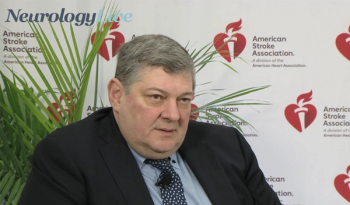
The medical director of the Cooper Neurological Institute spoke at the 2023 International Stroke Conference about notable research themes from the meeting. [WATCH TIME: 10 minutes]

The medical director of the Cooper Neurological Institute spoke at the 2023 International Stroke Conference about notable research themes from the meeting. [WATCH TIME: 10 minutes]

The director of Cleveland Clinic’s Cerebrovascular Center discussed the decisions mobile stroke units face and why opting for direct transfer to angiography is meant for certain scenarios. [WATCH TIME: 3 minutes]

The director of Cleveland Clinic’s Cerebrovascular Center provided perspective on a new study presented at the International Stroke Conference on experiences of poststroke patients taken directly to angiography suite. [WATCH TIME: 3 minutes]

Investigators Macarena Hernandez, PhD, and Marc Ribo, MD, provided commentary on positive phase 2a findings assessing ApTOLL in combination with EVT in patients with ischemic stroke.

Blood pressure medications may not be safe or effective to use for lowering systolic blood pressure following endovascular treatment for acute ischemic stroke.
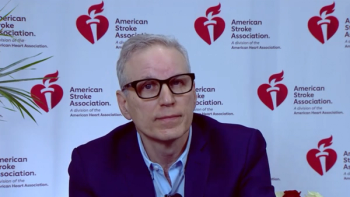
The professor of neurology at Harvard Medical School spoke at the 2023 ISC Conference about highlights from the STROKE-AF study after a 3-year follow-up. [WATCH TIME: 5 minutes]

In comparison with those who underwent additional imaging, patients with large vessel occlusion who directly went to angiography suite had higher mortality, but with no difference in functional outcome.

At the conclusion of the trial, treatment with 0.2 mg/kg of ApTOLL with EVT resulted in reduced brain edema and hemorrhagic transformation, as well as fewer deaths than placebo and 0.05 mg groups.

Patients with noncardioembolic ischemic stroke do not typically monitor post-stroke longterm to detect atrial fibrillation although findings from a trial follow-up suggest otherwise.

The medical director of stroke at Fairview Hospital, an affiliate of Cleveland Clinic, provided perspective on a new intervention that improves communication and reduces hospital readmission for stroke.
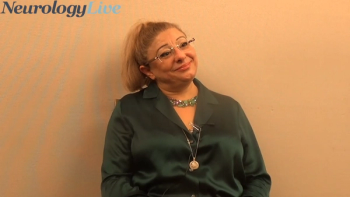
The chief medical officer at Alzheon provided perspective on the next steps for ALZ-801 following a successful phase 2 study of patients with APOE ε4/4 or APOE ε3/4 genotype. [WATCH TIME: 2 minutes]

At the 2022 AES Conference, the Baldwin Keyes professor of neurology at Thomas Jefferson University talked about how clinicians and patients might define a seizure. [WATCH TIME: 3 minutes]

At the 2022 AES Conference, the Baldwin Keyes professor of neurology at Thomas Jefferson University, talked about what defines a ‘seizure’ and changing the terminology. [WATCH TIME: 5 minutes]

At the 2022 AES Conference, the head of neurosciences at the Jane and John Justin Neurosciences Center of Cook Children’s Medical Center, talked about epilepsy surgery as an alternative for some patients. [WATCH TIME: 5 minutes]

The assistant professor in the Department of Neurology at the University of Wisconsin spoke about healthcare providers establishing trust with their patients and improving health equity. [WATCH TIME: 3 minutes]
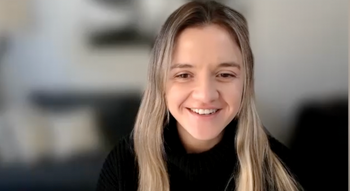
The scientific researcher and clinical manager, Icahn School of Medicine at Mount Sinai, spoke about the clinical models used to predict seizures in poststroke patients. [WATCH TIME: 4 minutes]

At the 2022 AES annual meeting, the associate professor at Harvard Medical School and neurologist at the Brigham and Women's Hospital talked about seizure frequency and insomnia. [WATCH TIME: 2 minutes]

At the 2022 AES Conference, the scientific researcher and clinical manager at the Icahn School of Medicine at Mount Sinai talked on seizure management with medication in poststroke patients. [WATCH TIME: 3 minutes]

Susan Abushakra, MD, chief medical officer at Alzheon, provided insight on findings from a phase 2 study in which ALZ-801 showed beneficial effects on cognition, Aß 42/40, and brain atrophy.

The assistant professor of neurology at the University of Virginia spoke at the 2022 AES Conference about clinical outcomes of patients with dementia who experience seizures. [WATCH TIME: 5 minutes]

The scientific researcher and clinical manager at the Icahn School of Medicine at Mount Sinai, spoke about a talk given at the 2022 AES conference on seizures after ischemic. [WATCH TIME: 5 minutes]

The president and chief executive officer of INmune bio provided perspective on the need to diversify the Alzheimer treatment landscape and the potential role of TNF inhibitors like XPro1595.

The assistant professor in the Department of Neurology at the University of Wisconsin spoke about the differences between health disparities and health equity in epilepsy care at the 2022 AES Conference. [WATCH TIME: 3 minutes]

The head of neurosciences at the Jane and John Justin Neurosciences Center of Cook Children’s Medical Center spoke about his experience in a debate on surgery in genetic disorders at the 2022 AES Conference. [WATCH TIME: 3 minutes]

The Baldwin Keyes professor of neurology at Thomas Jefferson University, spoke with us at the 2022 AES Conference about the definition of a seizure. [WATCH TIME: 3 minutes]
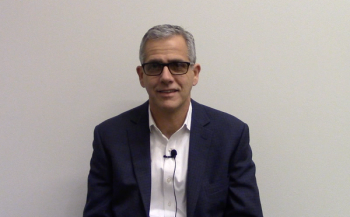
The executive vice president of Global Head of Research and Development at Jazz Pharmaceuticals, spoke on the results from the BECOME study presented at the 2022 AES Conference. [WATCH TIME: 6 minutes]

The professor of neurology at the University of Toronto talked about 3 conditions that were discussed during the epilepsy therapies symposium at the 2022 AES Conference. [WATCH TIME: 5 minutes]
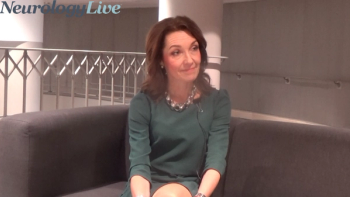
The professor of clinical geriatric epidemiology at Karolinska Institutet discussed strategies for lowering the risk of Alzheimer disease, and the new ways to approach prevention. [WATCH TIME: 4 minutes]

The professor of neurology at the University of Toronto spoke at the 2022 AES Conference about genetic approaches to comorbidities for patients with epilepsy. [WATCH TIME: 5 minutes]

The director of research at the TSC Alliance spoke with us at the 2022 AES Conference about future research to be conducted on patients with TSC such as the PREVeNT trial. [WATCH TIME: 6 minutes]